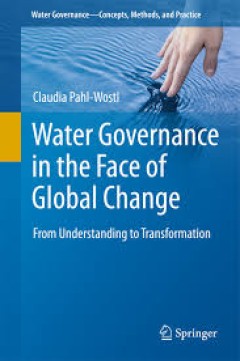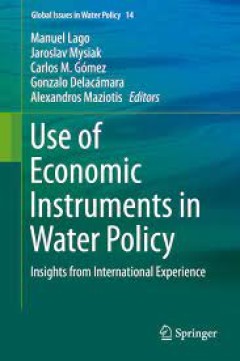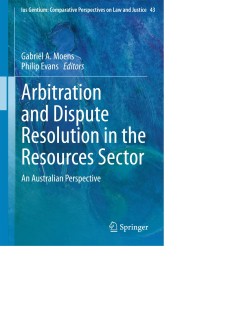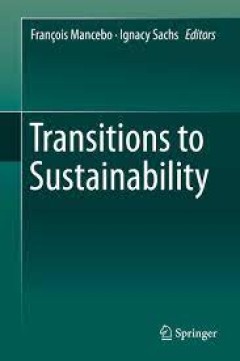Filter by

Maritime Spatial Planning: past, present, future
This open access book is the first comprehensive overview of maritime or marine spatial planning. Countries across the globe are beginning to implement maritime spatial plans; however the authors of this collection have identified several key questions that are emerging from this growing body of MSP experience. How can maritime spatial planning deal with a complex and dynamic environment such a…
- Edition
- 1
- ISBN/ISSN
- 9783319986968
- Collation
- XXXVII, 477 hlm; ill., lamp.,
- Series Title
- -
- Call Number
- -

Environmental Governance in Latin America
This book is open access under a CC-BY license. The multiple purposes of nature – livelihood for communities, revenues for states, commodities for companies, and biodiversity for conservationists – have turned environmental governance in Latin America into a highly contested arena. In such a resource-rich region, unequal power relations, conflicting priorities, and trade-offs among multi…
- Edition
- 1
- ISBN/ISSN
- 978-1-137-50572-9
- Collation
- -
- Series Title
- -
- Call Number
- XII, 338

Water Governance in the Face of Global Change From Understanding to Transfor…
This book offers the first comprehensive treatment of multi-level water governance, developing a conceptual and analytical framework that captures the complexity of real water governance systems while also introducing different approaches to comparative analysis. Applications illustrate how the ostensibly conflicting goals of deriving general principles and of taking context-specific factors in…
- Edition
- -
- ISBN/ISSN
- 978-3-319-21855-7
- Collation
- -
- Series Title
- -
- Call Number
- -

Use of Economic Instruments in Water Policy Insights from International Expe…
This book assesses both the effectiveness and efficiency of implemented Economic Policy Instruments (EPIs) in order to achieve water policy goals and identifies the preconditions under which they outperform alternative (e.g. regulatory) policy instruments and/or can complement them as part of complex policy mixes. The development of a consolidated assessment framework helps clarify (and where p…
- Edition
- -
- ISBN/ISSN
- 978-3-319-18287-2
- Collation
- -
- Series Title
- -
- Call Number
- -

Arbitration and Dispute Resolution in the Resources Sector: An Australian Per…
This book provides a comprehensive Australian perspective on the resolution of resources disputes. In particular, it focuses on the use of arbitration, mediation and adjudication in the resources sector. It concentrates on arbitration as the preferred method of dispute resolution, including international commercial and investor-state arbitration. The book offers fascinating insights into the us…
- Edition
- Ed. 1
- ISBN/ISSN
- 978-3-319-17452-5
- Collation
- XVI, 259
- Series Title
- Ius Gentium: Comparative Perspectives on Law and Justice
- Call Number
- 346.07 ARB a

Transitions to Sustainability
This book calls for the conditions of transition to sustainability: How to take into consideration new global phenomena such as and of the dimension of climate change, the depletion of natural resources, financial crises, demographic dynamics, global urbanization, migrations and mobility, while bearing in mind short-term or local place-based issues, such as social justice or quality of life? Me…
- Edition
- -
- ISBN/ISSN
- 978-94-017-9532-6
- Collation
- -
- Series Title
- -
- Call Number
- -
 Computer Science, Information & General Works
Computer Science, Information & General Works  Philosophy & Psychology
Philosophy & Psychology  Religion
Religion  Social Sciences
Social Sciences  Language
Language  Pure Science
Pure Science  Applied Sciences
Applied Sciences  Art & Recreation
Art & Recreation  Literature
Literature  History & Geography
History & Geography